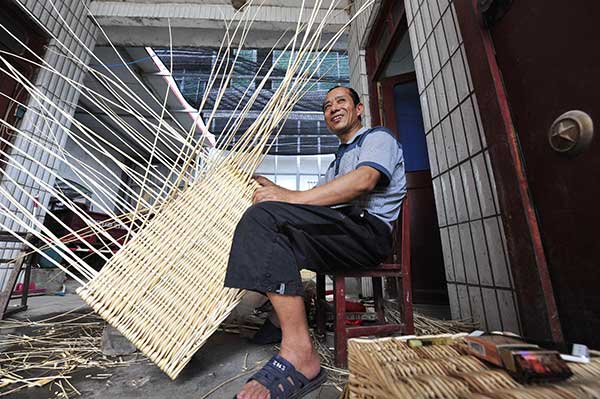
But thanks to the success of the willow-weaving businesses, almost all the young people are now staying in the village and managing online stores, says Wang, adding that even major delivery companies, such as Shunfeng Express, have built offices in the village to ensure good service.
"We send some of our young people to learn about e-commerce in the city and they then return and pass on their knowledge to the villagers. They also teach the older generation how to use computers, and how to set up and manage a Taobao store."
Last October, the village started working on an e-commerce industry park with an investment of 20 million yuan. It will provide offices, factories and warehouses to the villagers. Many residents from nearby villages have also been coming to Xuezhuang village to work and learn willow-weaving skills.
Meanwhile, according to statistics from the China Center of Information Industry Development, China's internet population has grown dramatically in the past decade and by June 2015 China had 667 million internet users.
The online business model has had a dramatic impact on the lives of village youth. An example of this is Wang Chao, a 28-year-old resident of Honghua town, located at the southern end of Tancheng county.
Speaking of how the online model has made a difference to his life, Wang, who owns Linyi Qiaoyi E-Commerce Company-the biggest online company selling Chinese knotted products-says: "Thanks to the development of e-commerce and the rising number of Chinese online consumers, we (online entrepreneurs) not only make more money now, but also enjoy better lifestyles."
With three registered brands and nine online stores on popular e-commerce platforms-Taobao, Tmall and Jingdong-Wang sells products worth around 15 million yuan a year.


















































